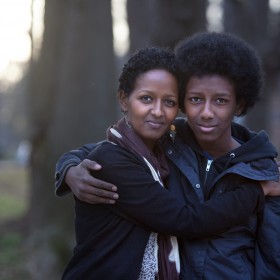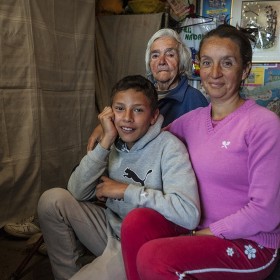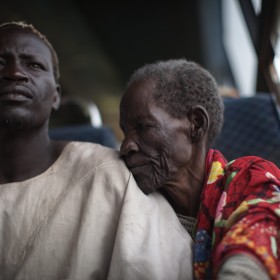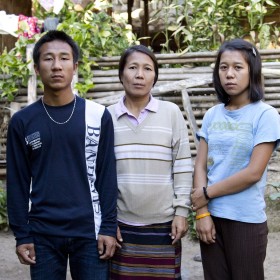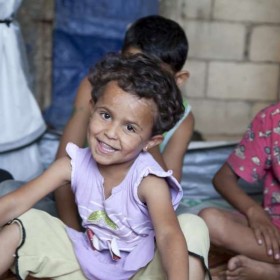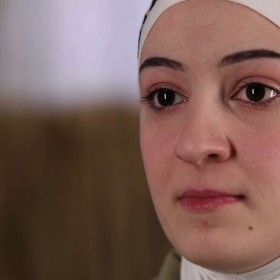Luz: courage through Butterflies
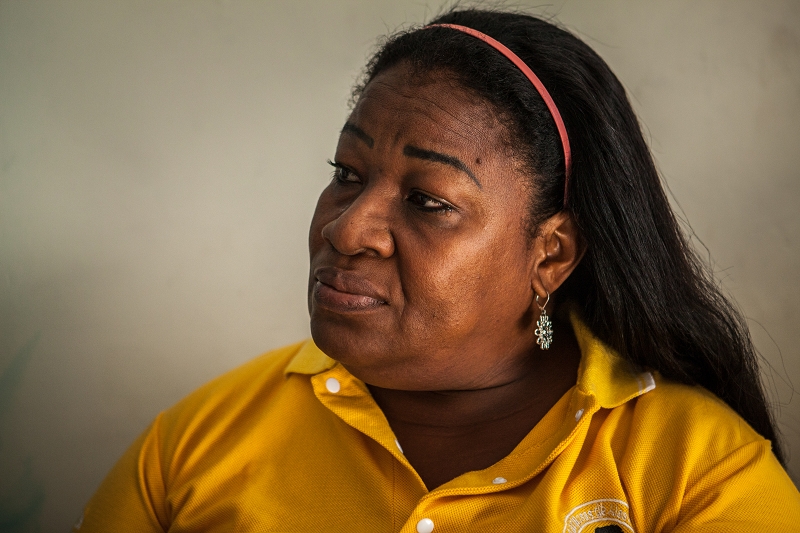
Luz Dary Santiesteban. Photo by UNHCR/J. Arredondo/2014
Dusk was approaching when Luz Dary Santiesteban heard gunfire and saw smoke towering from burning homes as rebels attacked her village in the rainforest of Colombia’s Choco province in November 1995. “Everyone ran for their lives. What was left behind was a ghost village,” she recalls of the assault on Punta Ardita and other villages on the Pacific coast. She sought shelter in the port city of Buenaventura, where she had earlier sent her four children to stay with relatives for their safety.
“My whole life went in a split second. Just like that,” says Luz Dary, clicking her fingers. “It was so hard to leave all my hard work, my house behind,” she adds, recalling her past life as a fisherwoman and the land on which she grew crops. “I arrived in Buenaventura wearing wet clothes and nothing else. Displacement took away my roots and the only life I knew and loved.”
Initially, Luz Dary raised and sold chickens in La Gloria, an Afro-Colombian neighbourhood of wooden shacks and no running water on the outskirts of dilapidated Buenaventura, Colombia’s main port. She became a local community leader and joined Mothers For Life, a rights group that provides support for women whose husbands, children and relatives have disappeared or been killed during Colombia’s long conflict.
The rights group is one of 23 grass-roots women’s organizations working in urban and rural areas around Buenaventura that became part of the “Butterflies” umbrella group from 2010 onwards. Luz Dary, like many community leaders, became caught in the middle of drugs-related turf wars. Armed groups linked to former paramilitary organizations fight for control over lucrative drug smuggling routes and extortion rackets and impose a reign of terror over entire neighbourhoods in Buenaventura, causing some people to become displaced within the city.
One day in 2004, four paramilitary gunmen turned up at Luz Dary’s home. It was a day that changed her life forever. “They grabbed one of my daughters, who was 10 at the time. They wanted to rape her. I told them do what you want to me, but don’t touch my daughter. I had to defend her. They started laughing. They put a gun to my head as they raped me one by one. They took away my dignity. I couldn’t fight back. I felt so impotent,” says Luz Dary as tears roll down her cheeks.
“They said my work as a community leader was awakening people in the community. They told me to stop and shut up. I wasn’t the only one raped in La Gloria. They used our bodies to mark territorial control. It was a way of showing they were in charge and putting fear inside us,” she adds.
The ordeal prompted Luz Dary to once again flee her home, only returning to Buenaventura last year. She is still haunted by what happened and she and her family still face a real threat from criminals linked to former paramilitary groups. “As a displaced person you can somehow rebuild your life. But you never forget that moment, the rape, and what happened. You remember it forever,” she says, shaking her head. “I also lost my husband after the rape. He left. I’ve never felt the same again. My big smile has gone.”
For six years, Luz Dary remained silent for fear of reprisal and the stigma and taboo surrounding rape. But since joining Butterflies and attending dozens of their workshops on women’s rights and how to report abuse and seek help, she has found the courage to break years of silence. “Through the network, I’ve grown stronger and learnt to value myself. It’s given me the courage to speak out,” she says, adding: “When I reported the crime, it was like taking out a cancer that had been consuming me.” Luz Dary went to the Ombudsman’s Office and told them that women in Buenaventura were being raped and that this had to be documented. We must raise awareness about what’s happening to women here,” she says, clenching her fist.
While Luz Dary waits for justice, she provides support and advice to other rape survivors and displaced women in the Butterfly network. She has studied the latest laws enacted to protect women, and says proudly: “I pass on my knowledge to other women in and outside the network.” And even though most crimes go unpunished in Buenaventura, Luz Dary says: “I believe in divine justice.”




